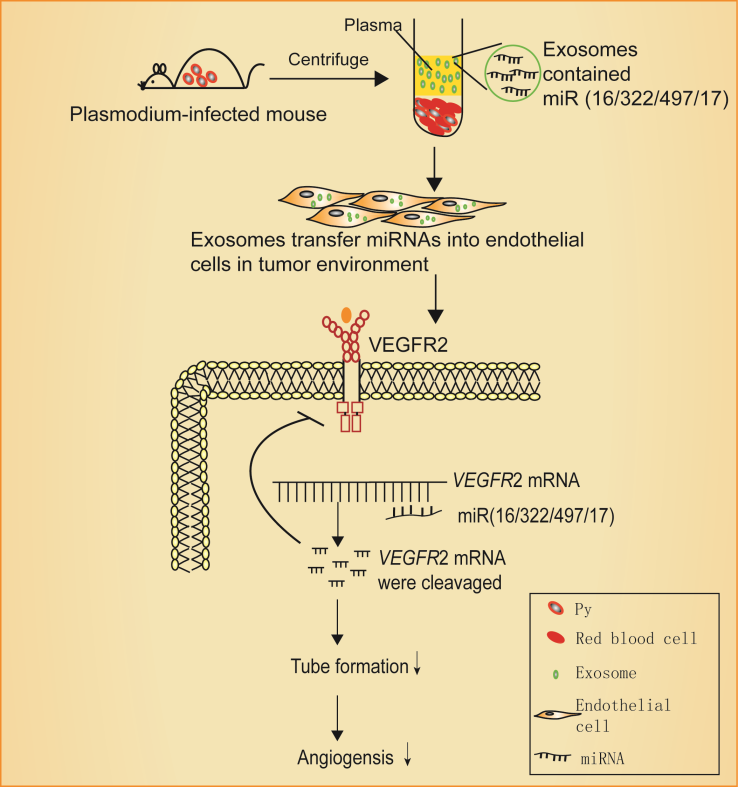
A research group led by Prof. CHEN Xiaoping from the Guangzhou Institutes of Biomedicine and Health (GIBH) of Chinese Academy of Sciences revealed a new mechanism about exosomes from Plasmodium-infected hosts inhibit tumor angiogenesis. The study was published in Oncogenesis.
Malaria infection has been found by CHEN's group to provide anti-tumor effects by inducing both anti-angiogenic and potent anti-tumor immune responses in a murine Lewis lung cancer model. Exosomes, which are extracellular vesicles that function in intercellular communication, may play key roles in disseminating pathogenic host-derived molecules during infection.
Whether the exosomes derived from Plasmodium-infected hosts inhibit tumor angiogenesis is unknown, therefore, researchers designed a murine Lewis lung cancer model study to address this question.
The exosomes were isolated from the plasma of Plasmodium-infected mice. The researchers found that when co-cultured with endothelial cells, the exosomes markedly suppressed VEGFR2 expression and decreased endothelial cell migration. Intra-tumor injection of the exosomes significantly reduced Lewis lung cancer (LLC) growth in mice.
They then detected higher expression levels of the micro-RNA (miRNA) 16/322/497/17 in the exosomes derived from the plasma of Plasmodium-infected mice compared with those from control animals, and observed that overexpression of the miRNA 16/322/497/17 in endothelial cells corresponded with decreased VEGFR2 expression and inhibition of angiogenesis in vitro, whereas inhibition of the miRNA 16/322/497/17 significantly alleviated these effects.
These data provide a novel understanding of the interaction between Plasmodium infection and lung cancer.

Figure: Schematic of plasma exosomes from plasmodium-infected mice inhibition of angiogenesis through miR(16/322/497/17) to target VEGFR2. (Image by CHEN's group)

86-10-68597521 (day)
86-10-68597289 (night)

86-10-68511095 (day)
86-10-68512458 (night)

cas_en@cas.cn

52 Sanlihe Rd., Xicheng District,
Beijing, China (100864)

